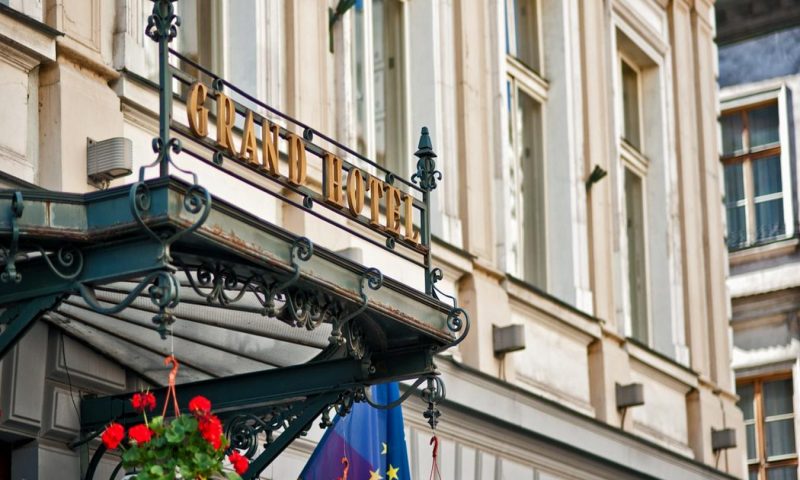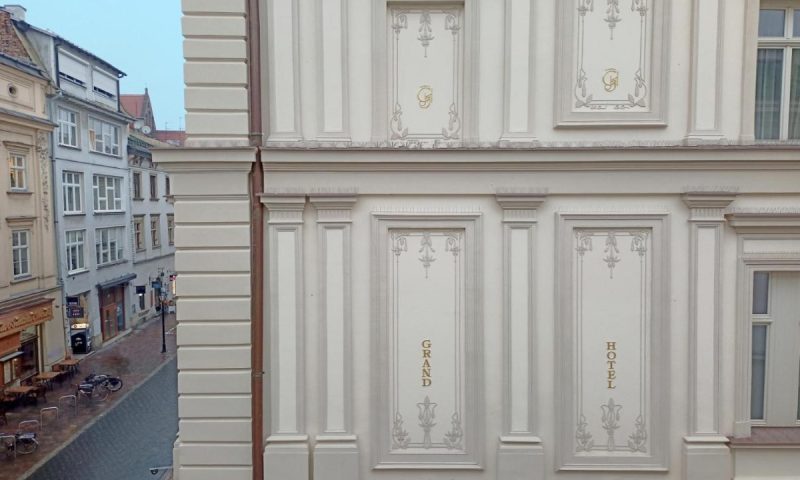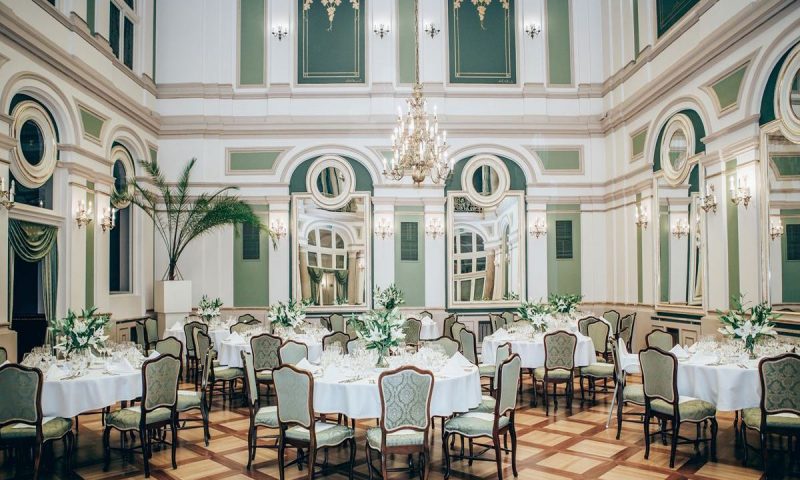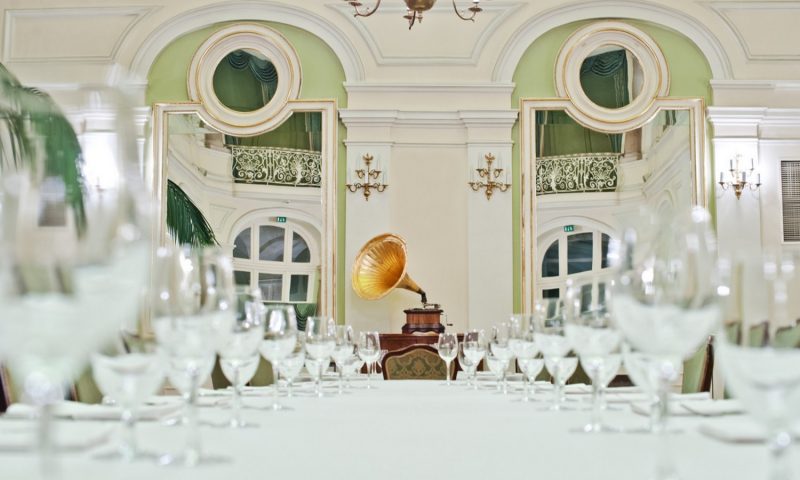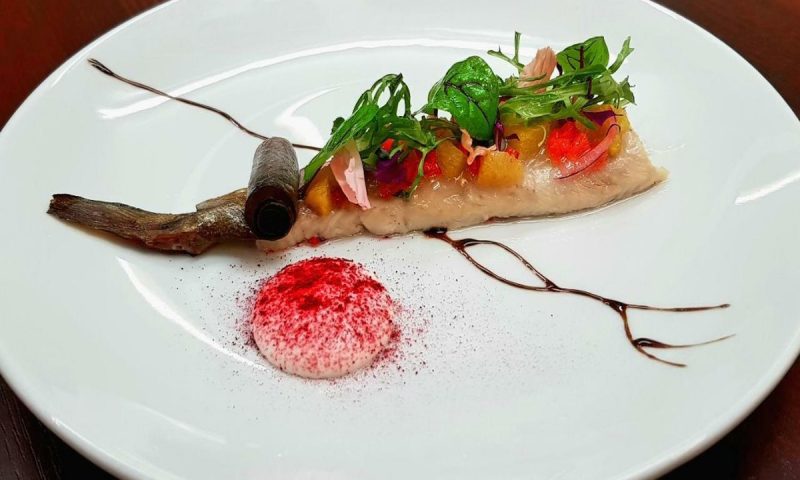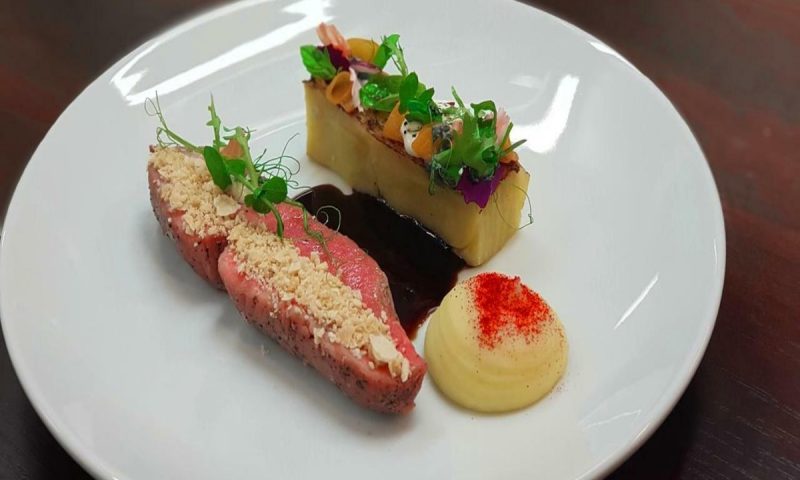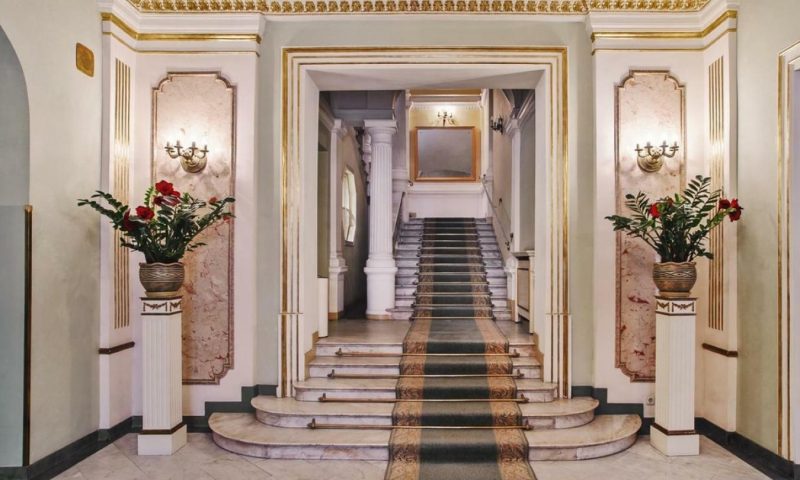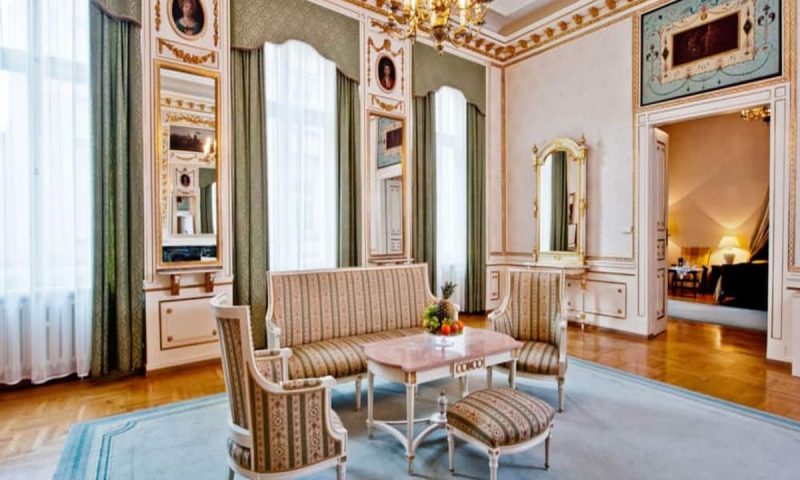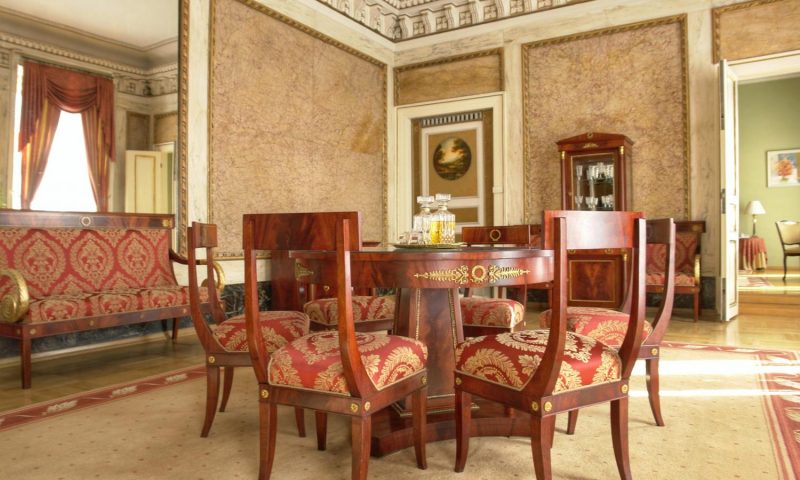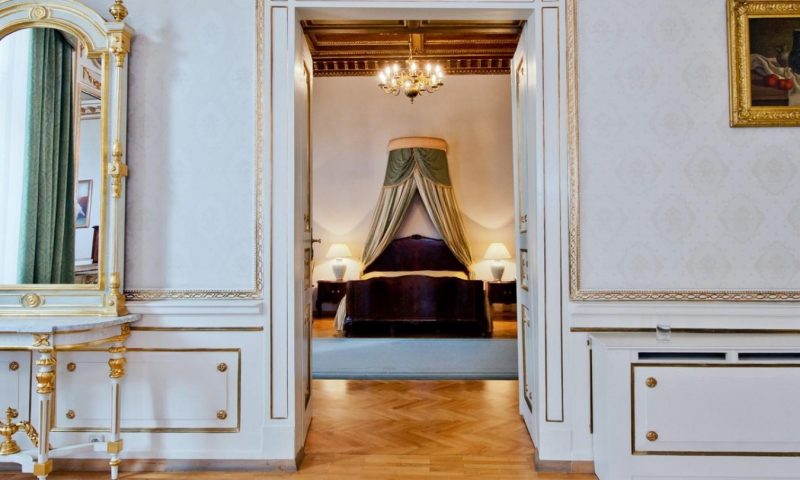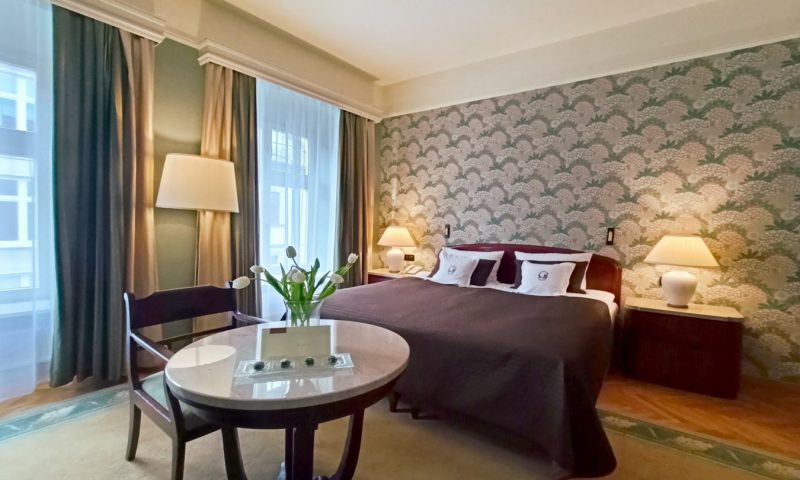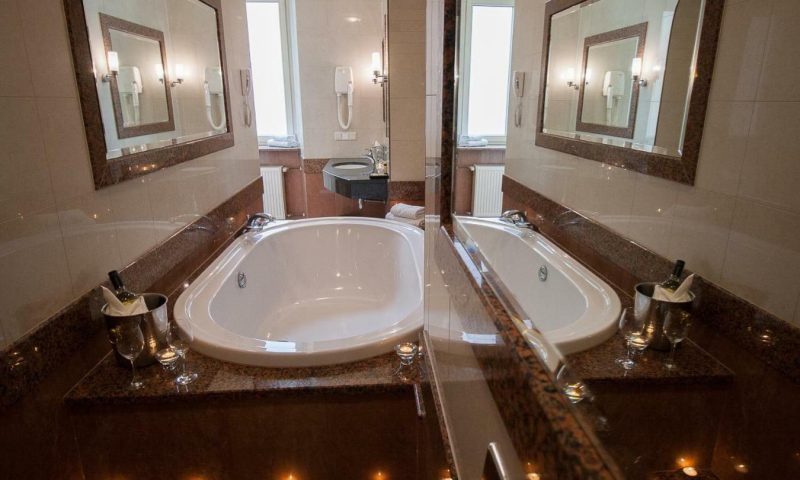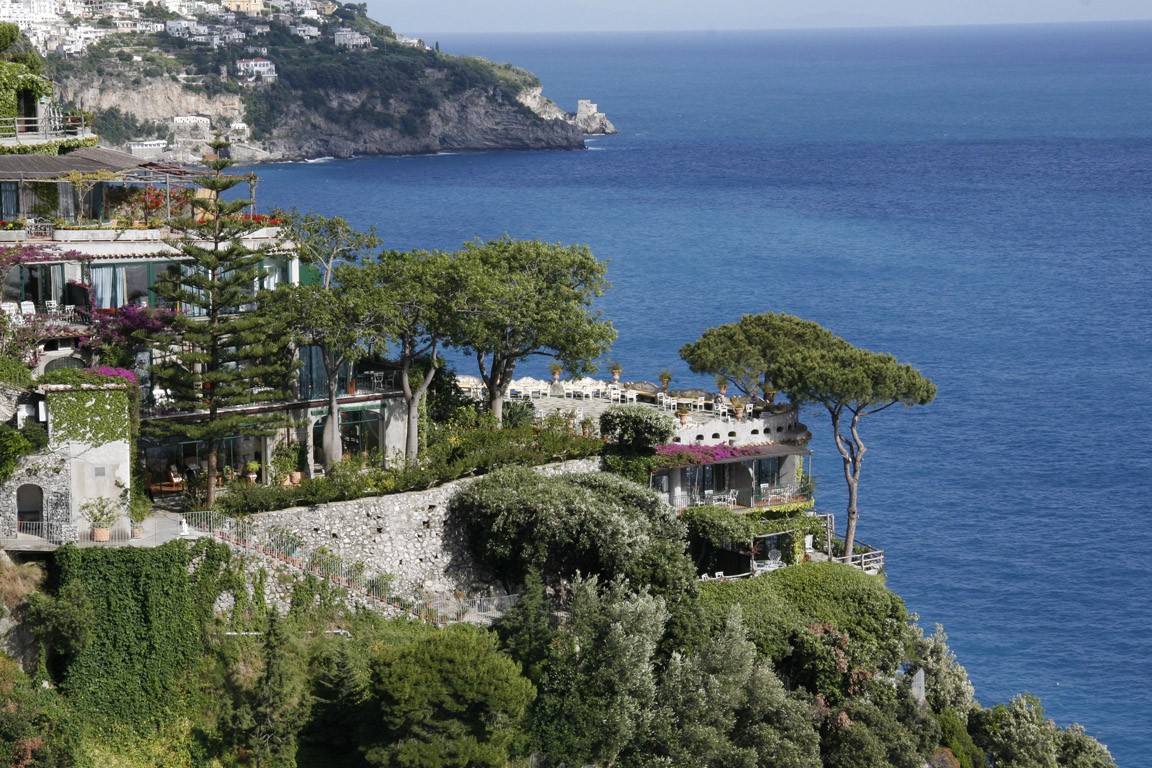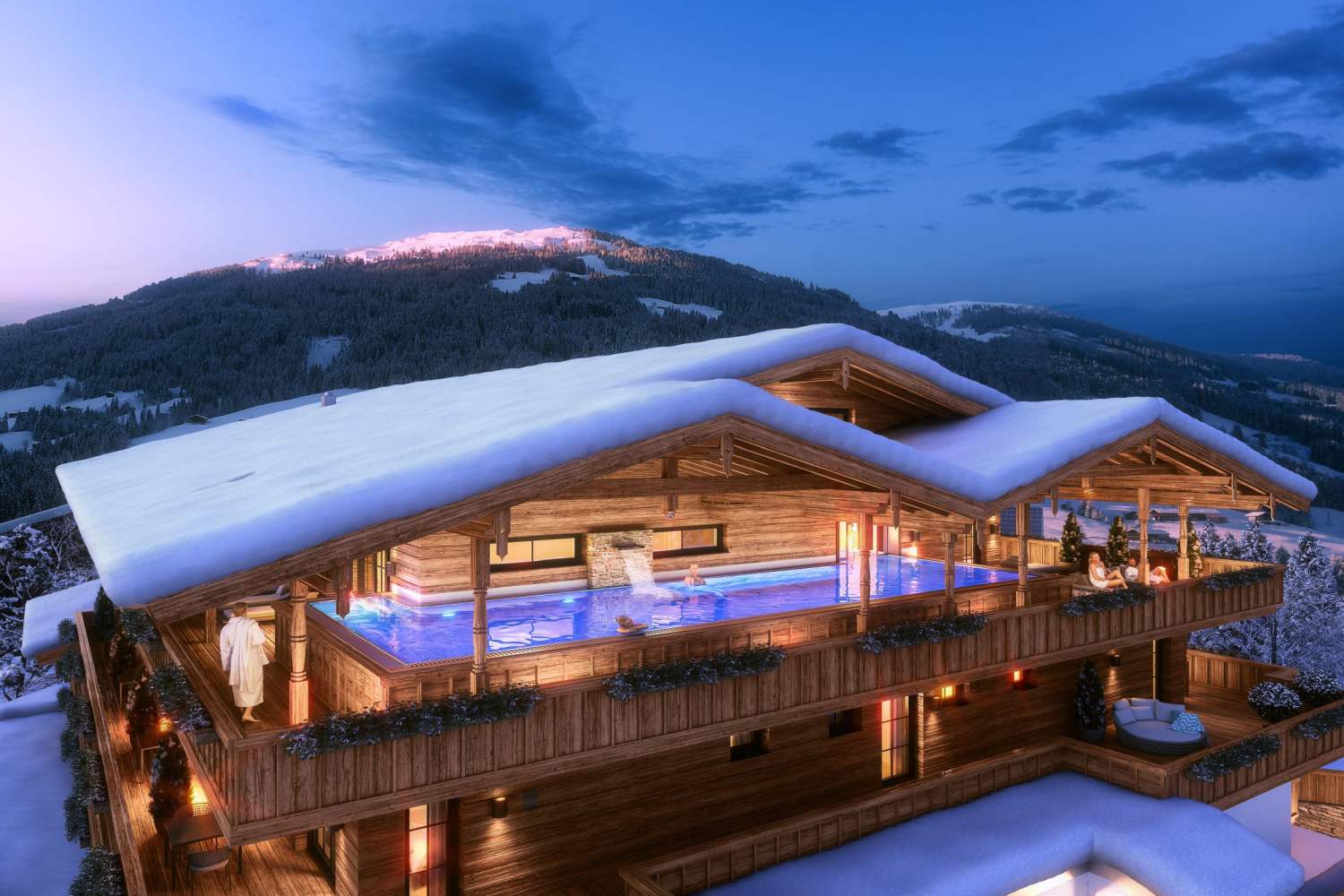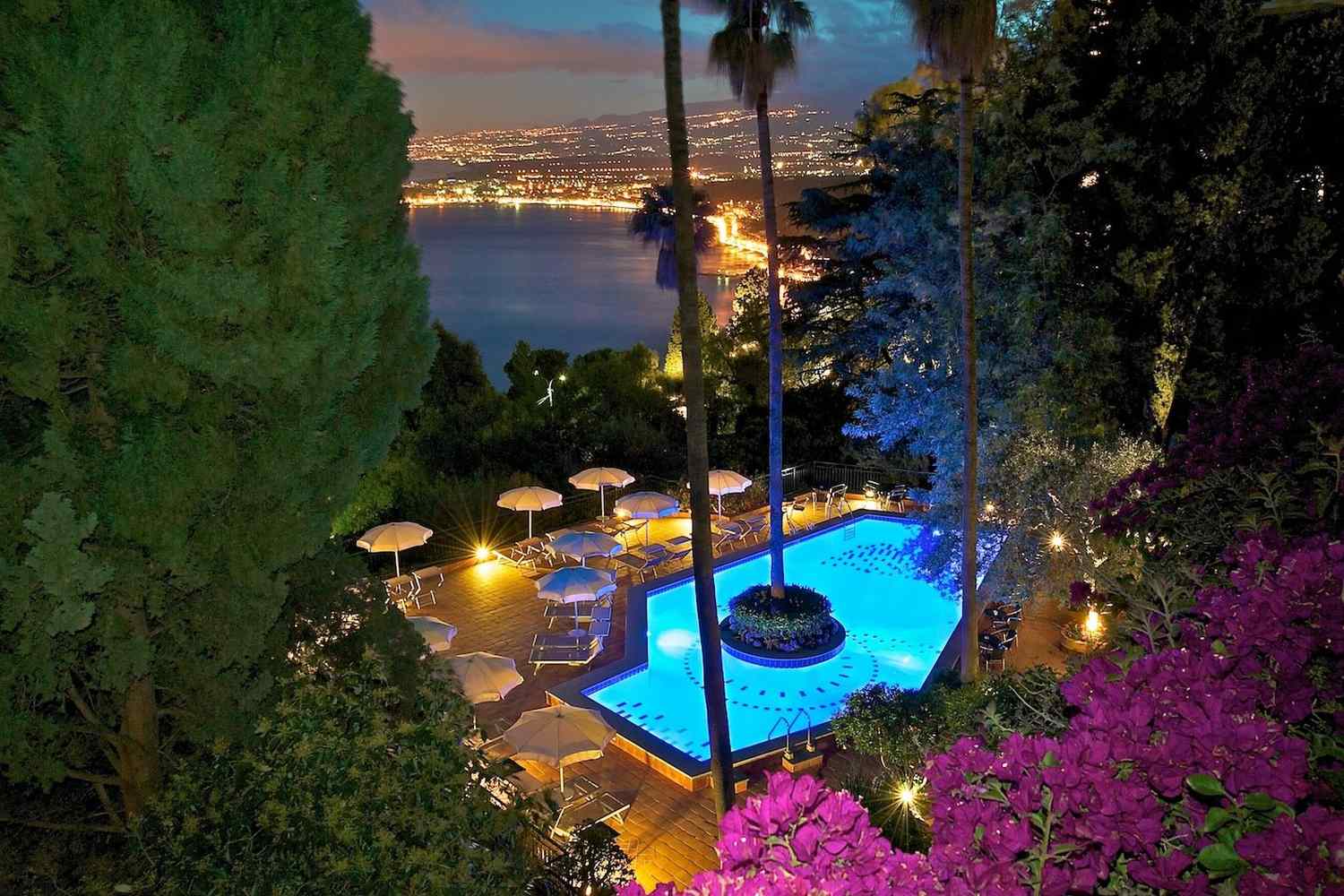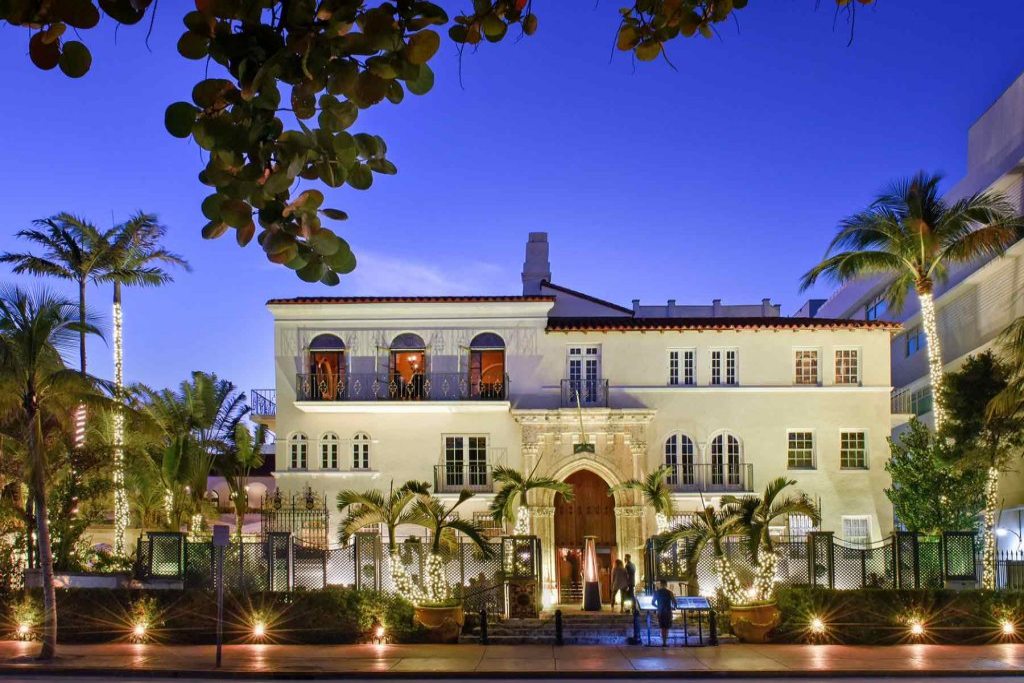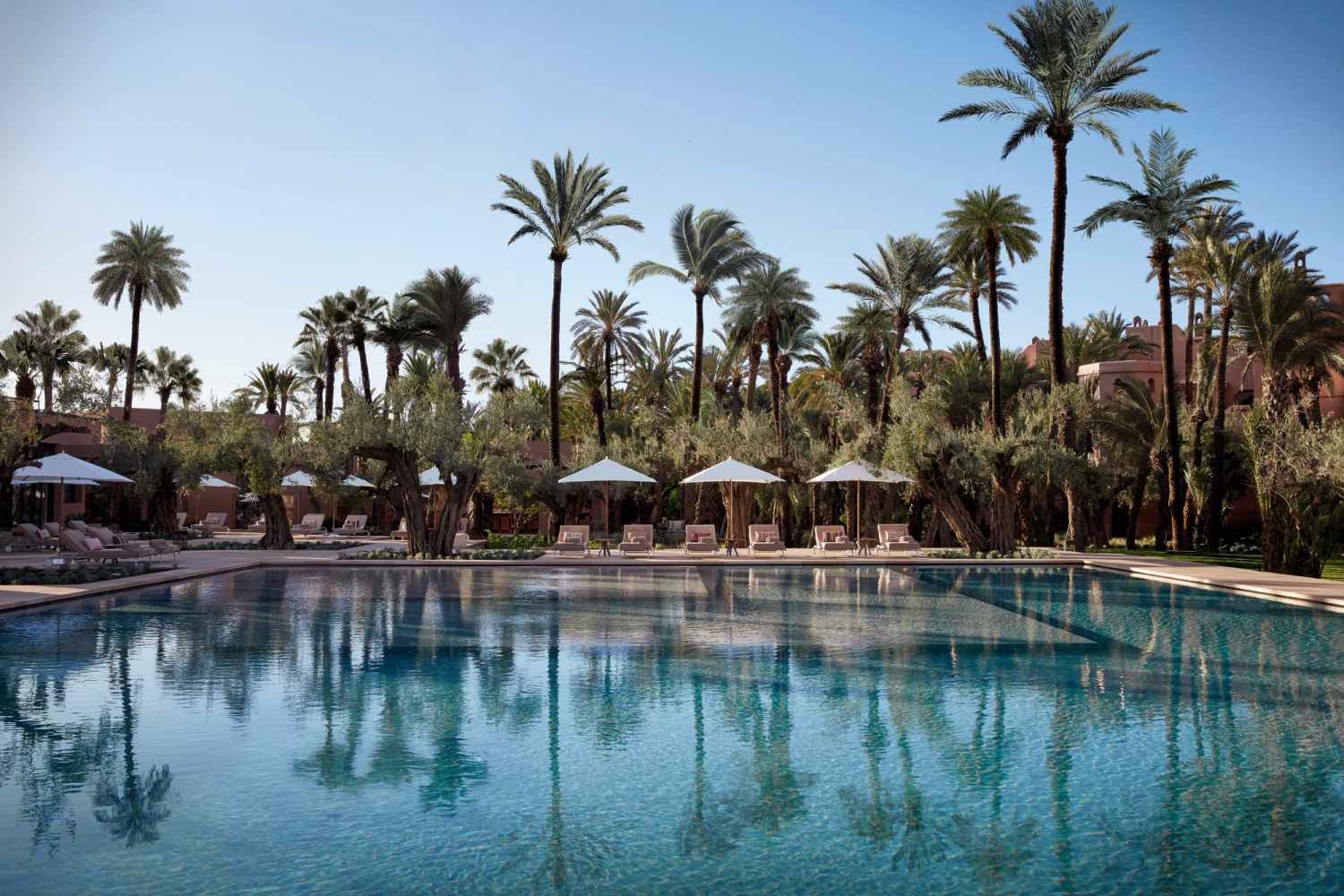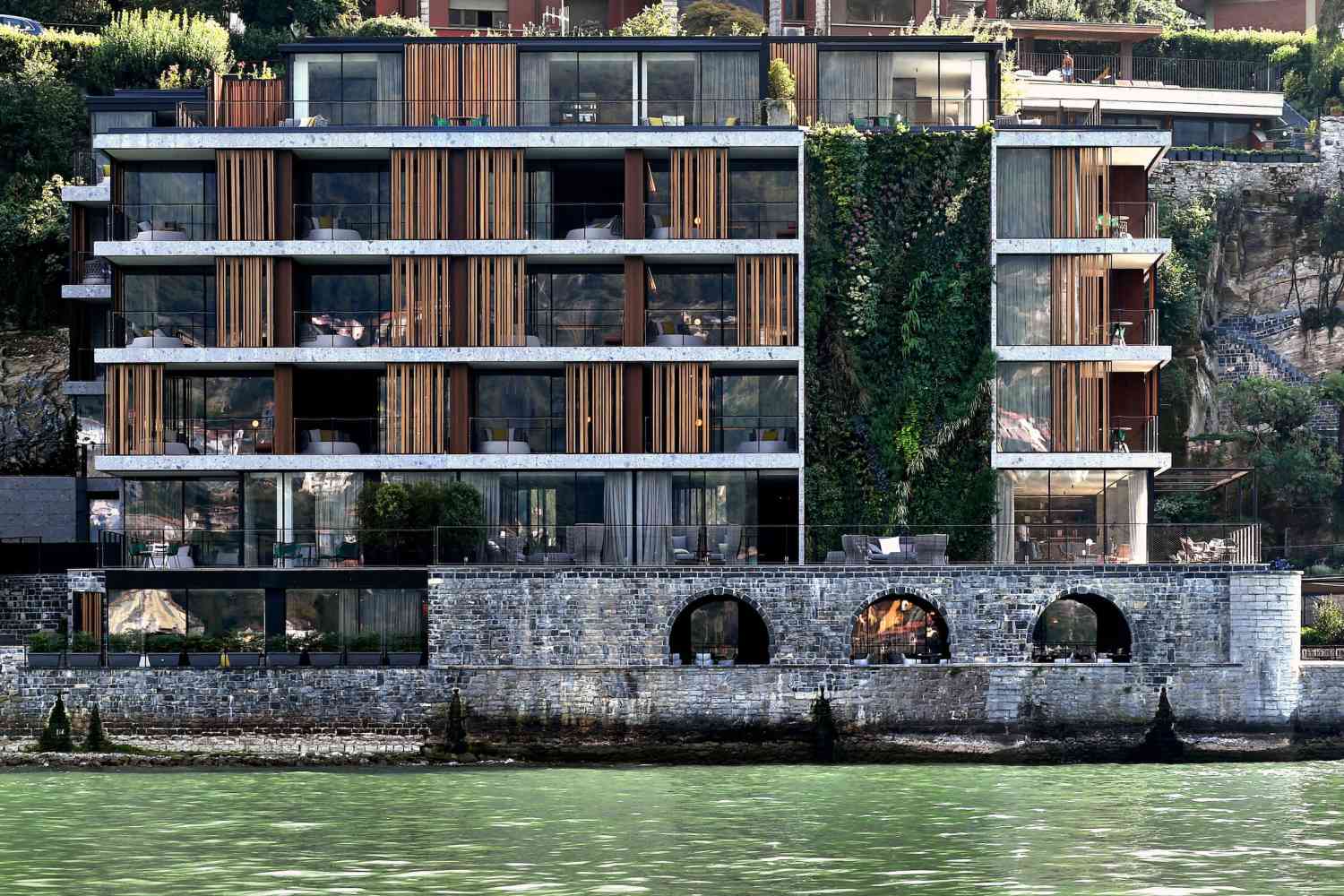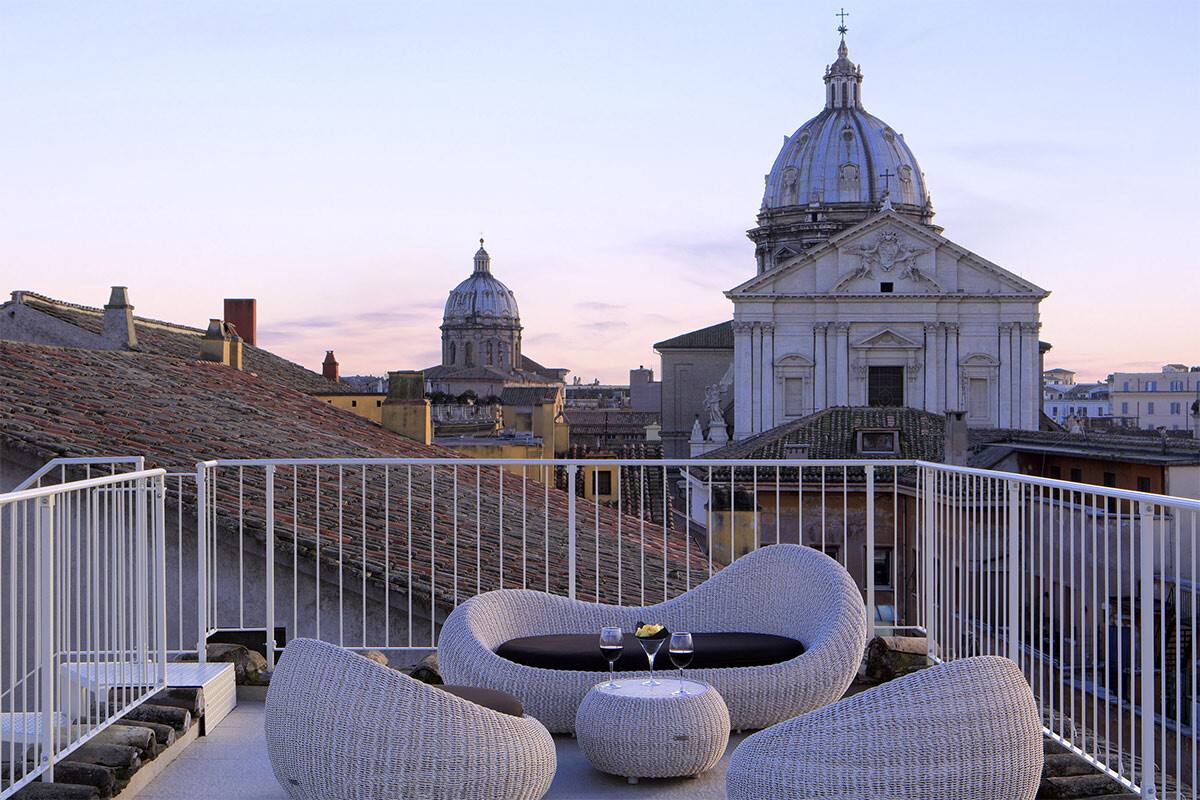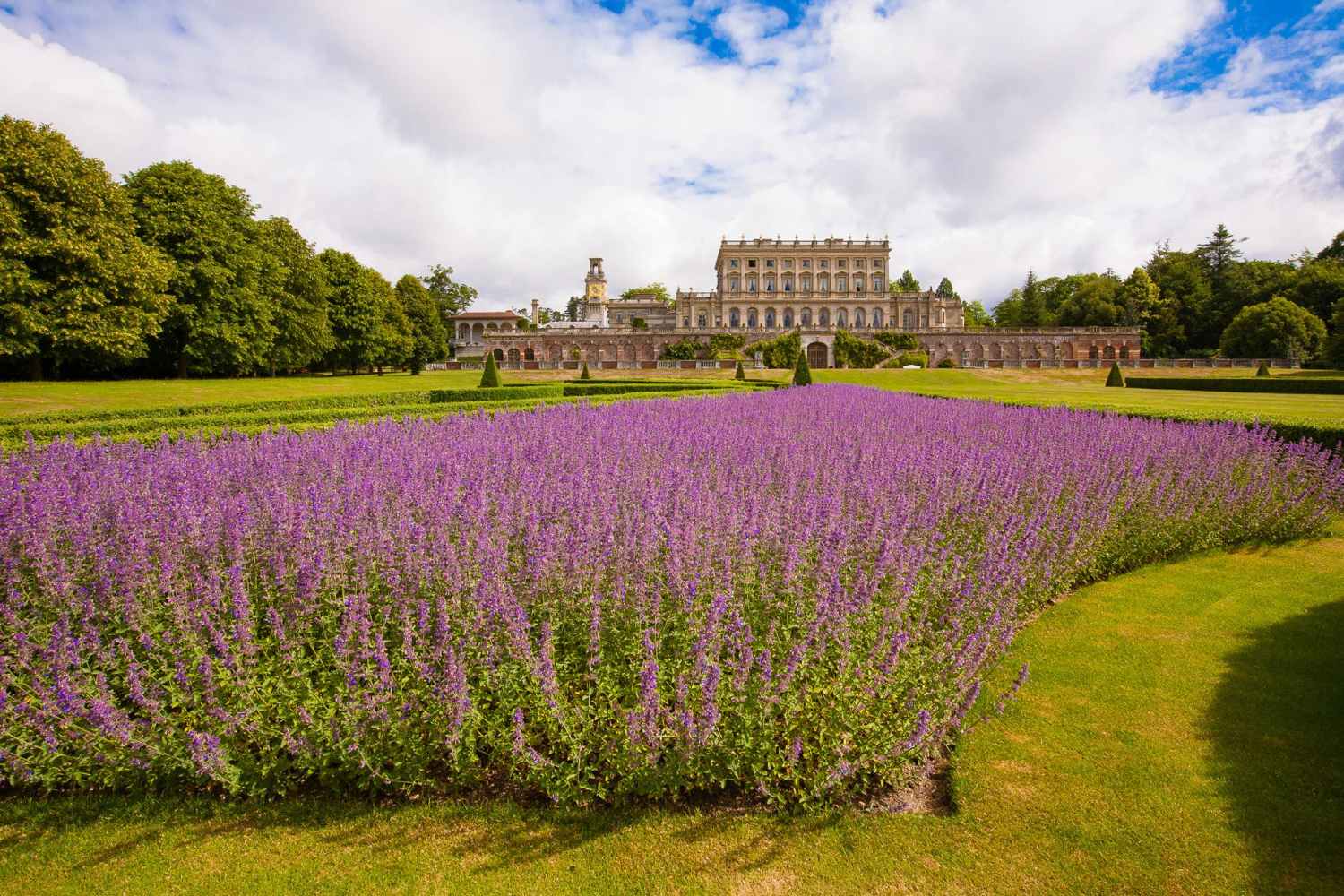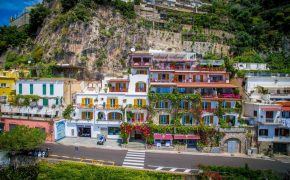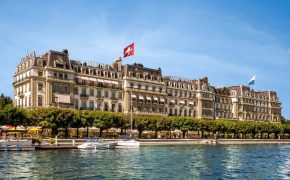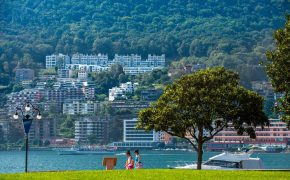In the very heart of the Krakow Old Town, next to the Main Market Square, there is a unique hotel. Since 1887 the Grand Hotel Krakow has been welcoming distinguished Guests, taking care of their comfort and satisfaction.
This former Palace of the Czartoryski Princes impresses with the beauty of its historical interiors renovated meticulously, unique atmosphere, elegance and luxury. It is also the first five-star experience hotel in the City of Krakow.
The guests of Grand Hotel Krakow have at their disposal comfortable rooms furnished with period furniture and unique, historical suites, including two Palace Suites, with the total floor area of approx. 100 m2 each.
The Grand Hotel Krakow has also become a multiple “media hero”, described in literature and film. It is an iconic place on the map of Krakow and its history has long been a legend. Dignified, legendary, luxurious… Grand Hotel Kraków.
EXECUTIVE SUITE
We recommend it to the Guests who need a comfortable and quiet place to work in a historic interior. Huge sliding doors allow to customize large spaces in a manner most convenient for the Guest.
Two-room suites with a stylish bathroom with a bathtub and a set of organic luxury cosmetics. Each room has a view of the historic streets of Krakow. They are equipped with a sofa, telephone, LED television set, mini-bar, safe and comfortable writing desk.
PALACE SUITE
The largest suites of approximately 100 m2 of floor area, with gilded, antique wooden panelling, ornaments decorating the walls and a marble fireplace. Exquisite Louis XVI style furniture and crystal mirrors.
The walls are decorated with the marble from the Chęciny quarry. The interiors are also enriched with exquisite portraits and carpets and tastefully selected furniture in the Empire style.
DELUXE ROOM
Bright, spacious historical interiors. Every detail designed to provide our guests with unforgettable experience. Each room is located in a historic former palace, equipped with a sofa, telephone, LED television set, mini-bar, safe deposit box and comfortable working desk. All rooms are air-conditioned, have a bathroom with bathtub, and an always-on Internet connection.
BUSINESS ROOM
Designed to give you a personal space to rest, relax and work while on a business trip. A comfortable bed, a convenient writing desk, LED television set , mini-bar, safe deposit box, mineral water replenished daily and unlimited High-Speed Internet are the benefits of this room.
GRAND CAFÉ
The Grand Hotel Café was opened on 12 February 1900, in the golden age of Krakow’s cafés. It soon became legendary and became the most fashionable focal point for artists, professors of the Academy of Fine Arts, writers, poets and numerous Krakow inhabitants who appreciated not only the taste of the specialities served at the Grand Café, but also the exceptionally inspiring atmosphere of the place.
Numerous photographs and memorabilia come from this period, The most valuable of which – such as Jacek Malczewski’s caricatures of his friends drawn on café napkins – framed, still adorn the walls of the Grand Café.
It was in this iconic Grand Hotel café, at the beginning of the previous century, that eminent Polish artists and representatives of the Young Poland era would meet every day: Jacek Malczewski, Leon Wyczółkowski, Teodor Axentowicz, Jan Stanisławski and Konstanty Laszczka.
The Grand Café was also frequented by Kazimierz and Włodzimierz Tetmajer, Lucjan Rydel, Feliks Jasieński or the famous Nobel Prize winners Stefan Żeromski and Władysław Reymont, who stayed in the city for a while.
Based on over 100 years of tradition, at the Grand Hotel café, you can order today, just like the former visitors of the place, the famous Galician cream puff, Krakow’s cheesecake, fruit meringue or rose ice-cream à la Grand. Everything is based on old, original recipes, but served in a new version and composed in a modern way.
GRAND SIGNATURE RESTAURANT
A place hallmarked by famous writers, the Nobel Prize winners, painters, hosting renowned figures from the world of science, culture and art. An eye-witness to many historical events the GRAND SIGNATURE Restaurant is the only place in Krakow that can boast of such a long and rich history.
Opened in the second half of the 19th century, it became famous for its excellent cuisine, appreciated by the aristocracy and landed gentry who visited the hotel in large numbers, as well as Krakow’s intellectual elite. Its lovers included world-famous writers such as: Henryk Sienkiewicz, Władysław Reymont, Stefan Żeromski or Joseph Conrad.
Today’s Grand Signature cuisine refers to the rich tradition of the place by using old recipes, such as Krakow’s dippy dip , sour soup on rye and oat ferment , or cream puff à la Grand served for over 100 years. However, the Chef does not treat these inspirations too literally, creating rather modern compositions based on local products and contemporary food trends.
UNIQUE COFFEE FLAVOUR
The taste of exceptional coffee at the Grand Hotel café was mentioned 120 years ago by the famous Polish Nobel Prize winner Henryk Sienkiewicz, who used to drop in here every morning for – as he wrote – “a coffee with cream famous for its deliciousness”.
Perhaps it was here, at the Grand Hotel, that Sienkiewicz created the plots of his literary works, including “Quo vadis” novel, for which he was awarded the Nobel Prize in 1905. We will never know, but the unique atmosphere of this place certainly had an impact on the Polish artists like no other place on the map of Krakow and continues to exert such impact to this day.
Only here, while sipping a small black coffee, can you admire the bronze busts sculpted by Professor Marian Konieczny of the members of the historic “Cinderella Club” meeting at the Grand Hotel, headed by the Professors Krawczuk, Zieliński and Podraza.
The enthusiasts of Krakow, history and art can sit down at the “Professors’ Table”, where Krakow professors gather, as they did 100 years ago, to discuss without any haste, over their morning Grande coffee and cream puff , the world changes taking place so rapidly…
WEDDINGS IN KRAKOW
A wedding reception is one of the most important events in one’s life. It should therefore take place at a unique place and leave unforgettable impressions.
The legendary Grand Hotel Mirror Room, remembering the crazy balls of the interwar period, described in Henryk Worcell’s book “Zaklęte Rewiry”, and later captured in the film under the same title, is undoubtedly such a place. Due to its rich history and excellent location, it is a unique place on the map of Krakow.
Situated just a few steps away from the Main Market Square and St. Mary’s Church, spacious, able to accommodate up to 120 invited guests, covered with an Art Nouveau stained-glass roof, full of the glitter of crystals and mirror reflections – the Mirror Hall is the perfect place to organize the Wedding of your Dreams.
EVENTS & BANQUETS
A well-deserved fame is still enjoyed by the Mirror Room, which has been preserved in almost its original condition since the hotel was built. It was here that in the interwar period the most elegant balls of the elite of the Second Republic of Poland were held.
Octagonal, roofed with stained glass, with cosy offices at the ground floor and Art Nouveau loggias at the first floor is still considered the most beautiful Ballroom in the City of Krakow.
The palace interiors of the Mirror Room are perfect for all kinds of grand, wide-sweeping events such as balls or wedding parties , but also for all kinds of banquets, family celebrations and company anniversaries, concerts, performances, fashion shows or presentations of luxury product brands.
FINNISH SAUNA
The session in the dry sauna cleanses our body of toxins, improves metabolism, reduces the feeling of tiredness, relaxes after a day of intense sightseeing. Pouring stones with a mixture of water and carefully selected essential oils, we additionally create a beneficial effect on our respiratory and nervous systems.
“GANBANYOKU” JAPANESE SAUNA
The name “ganbanyoku” means “rock bath” in Japanese. This unusual sauna consists of volcanic plates which are heated during the session from 36 to 42 degrees Celsius.
It is recommended after an intensive workout or a long walk, because while lying on the plates, the heat emitted from them penetrates deep into the body tissues, relaxing the muscles. The Japanese sauna speeds up metabolism, detoxifies the body and also has an anti-depressive and stress-reducing effect.
RELAXATION ZONE
Here, you can relax to the sounds of quiet music after a visit to the sauna and calm down after a day full of excitement.
FITNESS
Our guests do not have to forget about their workout plans. The Grand Hotel provides an airconditioned, well-equipped exercise room, located in the Wellness Zone (next to the Sauna and Relaxation Zone). Upon a special request we can also organise a personal coaching service. Please contact the hotel reception desk to arrange this.
THE HISTORY
The “Grand Hotel” brand – synonymous with hotel services at an unprecedented, luxurious level appeared in the 19th century. Hotels of this class were built in the most attractive districts of cities, often in palace buildings, with interiors filled with works of art, but also equipped with the latest technology.
In this way, they could satisfy the refined tastes of the
most sophisticated clientele. The history of Krakow’s Grand Hotel also begins in the 19th century, although the history of the building itself, or rather the complex of buildings forming today’s structure, dates back to the Middle Ages.
That is why in the oldest, underground part of the building, we can find medieval cross-ribbed vaults, and in many rooms and suites, architectural remains of past eras, including: Renaissance, carved columns, 16th century wooden ceilings with multi-coloured polychromes, antique supraportes or historical ornaments and woodgraining decorating the walls of the most representative rooms.
In 1873 a tenement house at 5, Sławkowska Street, and soon also the neighbouring one at number 7, was purchased by the ducal couple Marcelina, Fryderyk Chopin’s most famous pupil, and Alexander Czartoryski.
At that time, under the supervision of the famous architect Maksymilian Nitsch, two townhouses of medieval-Renaissance origin were transformed into a ducal residence, still regarded as one of the finest in the Republic of Poland. The palace soon became a focal point of social, intellectual and artistic life.
In 1886 Alexander Czartoryski’s heir and son Marcel leased out the palace to a hotel and after a few years sold it to Eustachy Jax Chronowski, a well-known connoisseur and collector of works of art.
The adaptation works were supervised by the famous architect of the Art Nouveau and Modernism eras, Tadeusz Stryjeński, who left behind the unique Art Nouveau stained glass windows, which now adorn the bay windows in the corridors of the first and second floors of the hotel.
On 15 January 1887, the opening ceremony of “the largest, most modern and most luxurious hotel in the city” took place, as the press wrote, making comparisons with the best European hotels.
The Grand Hotel soon filled up with guests mainly from the Polish and European aristocratic circles , and the hotel continued to undergo modernisation and expansion, resulting in a hotel enterprise of world renown, far ahead of its time.
With its own power generators, the hotel was the first to shine with electric light. The rooms were equipped with bathrooms and running water, and a legendary glass-roofed restaurant was built, named the “Hall of Mirrors” after the Belgian mirrors – a witness to the sumptuous balls, receptions and banquets of the political and intellectual elite of the time.
The main gate from Sławkowska Street, covered with a beautiful Art Nouveau awning and the stained glass windows decorating the corridors and the restaurant also date back to this period.
A frequent guest at the hotel’s café in those days was the famous Nobel Prize winner Henryk Sienkiewicz, for whom, as Adam Grzymała-Siedlecki recalled: “Krakow would not be fully Krakow if he did not turn up at 10 a.m. for a coffee with cream”.
The Grand Hotel restaurant hosted two lavish parties attended by this great writer. The first one was a wedding reception, which took place on 11 November 1893, after his marriage to Maria Wołodkowiczówna, and the second one – a jubilee reception, which was organised in honour of the Nobel Prize winner by his friends from the Academy of Arts and Sciences on 21 June 1899.
A little later – in 1914 – during his stay in Poland, another great writer and Nobel Prize winner with Polish roots stayed here – Joseph Conrad and his family, who also greatly appreciated both the local atmosphere and cuisine.
In the 1920s and 1930s, the Grand Hotel became the most elegant venue in Krakow during the interwar period, attracting the most eminent celebrities from the world of science, culture and art. On one of the restaurant walls hung a huge canvas on which famous painters, poets, publicists and artists expressed their thoughts.
It displayed hundreds of different sentences, sketches and poems written by the most eminent representatives of the Young Poland movement, such as Lucjan Rydel, Stanisław Wyspiański, Kazimierz Przerwa-Tetmajer, Tadeusz Boy-Żeleński or Ludwik Solski – lovers of the Grand Hotel café who spent long hours there every day.
In 1936 the Grand Hotel hit the headlines, due to an unusual event that took place within its walls. In June 1936, the Marble Suite was inhabited by the world-famous tenor – Jan Kiepura. This was not his only stay in this place, but this one went down in history due to the unique, spontaneous performance from the hotel window.
On the next day, after the concert, which with the participation of the artist took place in the Wawel Castle courtyard, from the early morning hours, despite the heavy rain, such a large crowd of admirers gathered in front of the hotel, that it completely paralyzed traffic.
Then the artist, dressed only in a dressing gown and a flat cap on his head, stood in the window of the suite where he lived and began to sing, and the crowd was stunned with delight.
When in the following year the artist came to Krakow, this time to perform during a charity concert at the Old Theatre with his wife – the world-famous singer and actress Marta Eggerth, he again stayed at the Grand Hotel.
This time, a crowd of admirers blocked Sławkowska Street all the way to the Main Market Square, and only thanks to the foresight of the hotel’s management, who, having realised the situation, led the artists out through the back exit, the concert could take place on time.
The 1920s and 1930s were the period of the hotel’s greatest splendour. It was a time of social meetings at café tables, of banquets, receptions and balls attended by the elite of the Second Republic of Poland.
In 1936, the Grand Hotel entered, or rather (according to Zygmunt Nowakowski’s review) “rode on 100 horses” into Polish literature thanks to the book written by its former waiter Tadeusz Kurtyka – “Zaklęte Rewiry” (“The Enchanted Territories”), which is a document depicting life of the most famous café and restaurant in Krakow.
The post-war years marked the beginning of a difficult period in the history of this historic place, marked by stagnation and progressive devastation. However, the beginning of the 1990s turned out to be lucky again for the underrun Grand Hotel.
Its new leaseholder Wawel-Imos International S.A. – is carrying out a thorough renovation of the building, carefully restoring the damaged pieces of architecture and furnishings, restoring the splendour and beauty of the former Czartoryski Palace and modernising its hotel functions.
The achievements of the hotel were noticed and highly valued by the Chapter of the prestigious competition of the Polish Promotional Emblem “Poland Now”. During its 10th edition, the Grand Hotel was granted a golden statuette and was awarded the first prize in the category of the best hotel and catering services.
On 22 March 2004, the Grand Hotel received another award with great satisfaction, worthily representing over a hundred years of tradition and obtaining the status of the first five-star experience hotel in the City of Krakow.
The beautiful, but also turbulent history of the Grand Hotel seems to confirm the idea that this place has been guarded by “genius loci” for centuries. This good spirit certainly also takes care of all those who live here…
The elite character of this legendary Krakow hotel, its rich history and location in the heart of the Old Town are still appreciated by crowned heads of state, heads of government, worldfamous artists, writers, prominent representatives of science, business and aristocracy.
The long list of Grand Hotel’s famous guests includes British Prime Minister Margaret Thatcher, Prince Philip, the husband of Queen Elizabeth II, Princess Brigitt von Hohenzollern of Sweden, US Secretary of State Colin Powell and German Chancellor Gerhard Schroder.
The Grand Hotel was the organisational centre of the stay in Krakow of the Japanese imperial couple – Emperor Akihito and his wife Empress Michiko.
From the Polish government circles the following officials have stayed at the Grand Hotel: Nobel Peace Prize winner – President Lech Walesa, President Aleksander Kwasniewski, Prime Ministers: Marek Belka, Włodzimierz Cimoszewicz, Jerzy Buzek, President of Poland in exile Ryszard Kaczorowski, legendary war courier and director of Radio Free Europe – Jan Nowak-Jeziorański, or Minister of Foreign Affairs – Władyslaw Bartoszewski.
Apart from representatives of the world of politics, artists and writers have always been numerous guests of the Grand Hotel. Not so long ago, one could meet at the Krakow’s Grand Hotel the Nobel Prize winner Czesław Miłosz who already passed away, Sławomir Mrożek or William Wharton.
Since the very beginning of its operations, the Grand Hotel, closely connected with the artistic world and being the metaphysical home of Joseph Conrad in Poland, became a partner of the Joseph Conrad International Literature Festival in 2009. The film making industry has also took liking to the unique atmosphere of the Grand Hotel.
Many film directors have stayed here: Roman Polański, Agnieszka Holland, Juliusz Machulski, famous actors such as Holly Hunter, Kenneth Branagh, or Adrien Brody. Hotel guests included also famous musicians: the founder of Deep Purple – Richie Blackmoor, guitarist of Queen – Brian May and many others.
The tradition of intellectual disputes held daily at the hotel café by a group of eminent Krakow’s professors (the Cinderella Club), at the now legendary table – known as the “professors’ table” – has been revived.
GRAND HOTEL IN LITERATURE
In 1936, Krakow’s Grand Hotel entered Polish literature for good thanks to the book titled “Zaklęte Rewiry” (The Enchanted Territories), which was received by the literary circles as an excellent debut by Tadeusz Kurtyka – a former waiter at the Grand Hotel, publishing under the pseudonym Henryk Worcell.
He worked between 1928 and 1936 as a waiter, first in the café and then in the hotel restaurant. In 1933 he began writing his memoirs, which with time turned into a kind of autobiographical novel full of invaluable information and anecdotes concerning hotel life “behind the scenes ” to “the café table”.
Undoubtedly, it was the Grand Hotel café that was the place where the waiter Kurtyka transformed into the writer Worcell, who, according to Zygmunt Nowakowski’s review, “rode into Polish literature on a hundred horses”.
The most valuable features of Worcell’s novel were the vivid depictions of café and restaurant life from behind the scenes: “from the perspectives of kitchen, buffet, pantry and sideboard”.
In the novel, the author called the Grand Hotel the “Pacific” (thus the English name of the feature film is “The Pacific Hotel”), and hid himself under the figure of the main character Roman Boryczko, who started his way to becoming a waiter from a position of dish washer in the kitchen.
In real life, waiter Tadeusz Kurtyka, having the opportunity to observe the behaviour of café guests and participating in the daily operations of the Grand Hotel’s catering facilities, was able to convey the unusual atmosphere of the place and, in an interesting literary record, record the history of this legendary hotel. The book was reprinted many times and in 1975 Janusz Majewski made a film based on the book under the same title.
The Grand Hotel in Krakow turned out to be such an interesting subject that it has been the subject of a comprehensive monograph written by Professor Irena Homoli-Skąpska.
The author describes the history of this place in an extremely interesting way, bringing closer the history of the historic tenement houses, which were later incorporated into the Grand Hotel complex, as well as the people who owned it and those who met for many years at the hotel’s café and restaurant.
We can thus trace the process of conversion of the Renaissance townhouses into the ducal palace of Marcelina and Alexander Czartoryski and setting up the most famous artistic and literary salon of Krakow, and after the sale of the palace to Eustachy Jax Chronowski, the transformation of this place into the most luxurious hotel of Krakow.
The author recalls many amusing stories and anecdotes connected with famous café regulars and hotel guests – often eminent figures of the time. She also quotes humorous poems that famous guests often left on café napkins.
“Zaklęte Rewiry” (The Pacific Hotel) directed by Janusz Majewski is a faithful screen adaptation of Henryk Worcell’s novel of the same title. The director cast a young Marek Konrad in the lead of Roman Boryczko, and an excellent Roman Wilhelmi as the brutal waiter Fornalski who persecuted him.
Both were awarded for their outstanding acting performances. For the purpose of the film, the Krakow’s Grand Hotel is renamed into Hotel “Pacific”. The director invites us to visit this hotel and take a look at its quarters, usually inaccessible to guests.
The film is set in the early 1930s and tells the story of a teenage boy from the countryside who is hired to work in the restaurant of the city’s most luxurious hotel and climbs the hotel career ladder at the cost of constant humiliation.
In an excellent way it presents a picture of the life of the Grand Hotel in Krakow, seen through the eyes of its waiter and based on his own experiences. It is an excellent study of the attitudes and behaviour of the hotel’s staff and regulars in the Grand Hotel’s cafés and restaurants. British film critic David Shipman expressed the opinion that “there is no better film about hotel life than this one”.
GRAND HOTEL IN FILM
If you want to see the Grand Hotel in a different setting, we recommend watching several films shot in its interiors, which are a charming scenery desired by directors to shoot their productions there.
Over the years, several feature films and many hotel episodes have been shot here, enhancing the recognition of this place on the map of Krakow and making the legendary Grand Hotel a contemporary “media celebrity “.
The best-known film production for which hotel scenes were shot in the Grand Hotel in Kraków is the excellent 2004 comedy “Vinci” directed by Juliusz Machulski and starring Borys Szyc, Robert Więckiewicz, Kamila Baar and Jan Machulski. Another comedy, directed by Robert Gliński, premiered the same year – “Długi weekend” / “Long weekend”, this time filmed almost entirely inside the Grand Hotel.
“Women Without Shame” shot in 2016 is a contemporary Polish comedy directed by Witold Orzechowski and starring, among others, Joanna Liszowska and Anna Dereszowska. Many of the film’s scenes were shot precisely in the Krakow’s Grand Hotel.
The Polish Television 2018 flagship series, kept by Maciej Migas in a “Belle époque” style, also contains some scenes shot at the Grand Hotel. There are many more film productions to come, as film crews have developed special liking to our hotel and keep coming back.
GRAND HOTEL IN JOURNALISM
When the BBC presenter and host of the acclaimed programme “Great Continental Journey” arrived in Krakow, he could not fail to stop at the legendary Grand Hotel and add it to his script.
The programme crew moved with the camera through the historic interiors of the Krakow’s Grand Hotel, trying to move their viewers back to the year 1914, when Joseph Conrad, his wife Jessie and sons: Boris and John stayed here and to revive the ambience of the place and the bygone era.
It would be difficult to list all the programmes that were filmed inside the Grand Hotel, because the place has become so important in the history of our country and so many prominent representatives of the world of politics, culture and art have been connected with it over the years that it is difficult for the makers of these programmes to skip the Grand Hotel in their scripts.
The History Channel of the Polish Television visited our hotel many times with a camera, filming scenes related to various historical figures. One of the most interesting programmes shot by this station was a film attempt to recreate Jan Kiepura’s stay at the Grand Hotel in 1936 and his spontaneous concert in a bathrobe in the window of the Palace Suite for the crowd of admirers gathered in front of the hotel.
